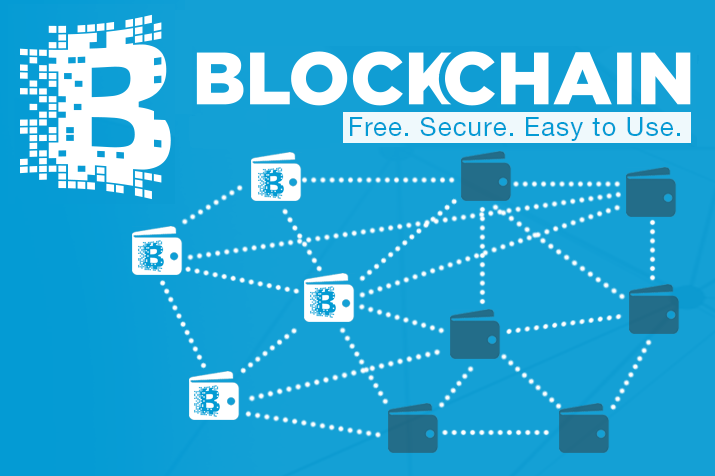A few weeks back on 19 November I attended a Blockchain event – one of the Future of Work sequence of sessions sponsored and hosted by Truphone, organised by Lloyd Davis of the Tuttle Club and Helen Keegan of Heroes of Mobile. These sessions explore different technologies and their potential impact on the business landscape, and the workplace. It was an interesting event, with singer Imogen Heap talking new approaches and business models oriented towards the working musician within the music industry, but it wasn’t quite the topic primer on Blockchain I was looking for. A good event nevertheless, and the second part of this post covers my notes on Imogen’s session. But first I want to relate the subsequent homework I did to figure out how to explain why Blockchain is so important.
Part of the problem with talking Blockchain is that commentary on it is often strongly tied to the digital currency that it supports – Bitcoin. That single implementation overwhelms most explanations of the underlying technology. I’ve looked at a lot of explanations generated over the last year and come away puzzled, but the best I’ve found is from Mike Gault on re/code on July 5. He starts by saying:
“Imagine that you’re walking down a crowded city street, and a piano falls from the sky. As dozens of people turn to watch, the piano crashes down right in the middle of the street.
Then, without a second to lose, every person who witnessed the event is strapped to a lie detector and recounts exactly what they saw. They all tell precisely the same story, down to the letter.
Is there any doubt that the piano fell from the sky?”
This is the innovative and disruptive concept behind blockchain technology – a distributed consensus model for recording digital events of any kind. A way of simply and easily creating a digital ledger of events that is automatically duplicated across many nodes and could be recording anything from an exchange of currency, to a contract, to any step in a process that needs to be certified and verified. Wikipedia tells me that blockchain is a permissionless distributed database, derived from the bitcoin protocol, that maintains a continuously growing list of transactional data records hardened against tampering and revision, even by operators of the data store’s nodes. Each blockchain record is enforced cryptographically and hosted on machines working as data store nodes. The cryptography combines with the fact that the records are duplicated across many nodes in the network so that tampering with a record would be so astronomically “expensive” as to be impossible in practical terms.
Think of what that could change in business. At the moment so many processes rely on some trusted intermediary and a multi-stage process of exchange. Whether that’s a bank, or an accountant in practice, or a law firm, or some legislative body with a compliance procedure to follow or a combination of several of these things. Suddenly, one or more layers of process complexity could be taken away and replaced by a single ultra secure transaction in a ledger. If we are talking money, then we are used to a system of promisary notes, bank notes, bank cards, online banking systems and phone apps that access our money, controlled by the institutions which print the notes, record the amounts, exchange them with our customer and supplier bank accounts, trade them in to other currencies for exchange, or hold them in secure vaults. These can be replaced by a digital ledger and much simpler processes without the need for all of that administration and physical infrastructure. The same digital concept can be applied to simplify the processes around agreeing and verifying a contract, a person, ownership of a thing, or any sort of event, in the broadest sense, that needs to be trusted. Take a look around the audience at the next Blockchain event you are at, and you will see that banks, law firms and accounting practices are taking note and getting educated. New markets and new ways of working are going to be created alongside legacy infrastructure, similar to the way basic mobile phone message technology has been so disruptive in Third World markets in recent times (but on steroids). A lot of what we now consider as normal business practice will change over the next 10 years because of the Blockchain.
 So let’s head back to Imogen Heap the Grammy Award winning composer, performer, recording engineer, technologist, and inventor talking about the music business. She explained her Mycelia project, taking it’s name from fungal colonies of mycelium forming the largest organism in the World, relating that idea to the music business. The music content are the nutrients underground and above ground you access them with Spotify or iTunes or YouTube but using Blockchain technology. The model would change from the current centralised model where the record companies are the intermediary gateway controlling everything, to a distributed network where the creator of the content, the musician, would have the power. Imogen would know every time one of her pieces was downloaded or played, and she would control the cost and decide if and when it might be free. Mycelia would have open and shared data so that fans could find out about the bands they were interested in. There would be tools to help, curation provided, and choices available so you wouldn’t just have access to a small compressed music file, you could choose the high resolution version to get the full sound experience that was created in the studio. The approach would make the revenue splits between the musician and other parties involved transparent. There would be Blockchain based smart contracts as an integral part of this new solution. Imogen has been interviewed by Forbes magazine around this topic. She worries that the music industry has boxed itself in to a corner where their model is based on producing a few big hits a year and so the industry is too top heavy. Actually, like any market, we need healthy competition but coming back to her mushroom analogy, we need to nourish the base layer of the industry. Her belief is that the key to that is to make the whole process easy, in the way Napster was when it first started to subvert the industry.
So let’s head back to Imogen Heap the Grammy Award winning composer, performer, recording engineer, technologist, and inventor talking about the music business. She explained her Mycelia project, taking it’s name from fungal colonies of mycelium forming the largest organism in the World, relating that idea to the music business. The music content are the nutrients underground and above ground you access them with Spotify or iTunes or YouTube but using Blockchain technology. The model would change from the current centralised model where the record companies are the intermediary gateway controlling everything, to a distributed network where the creator of the content, the musician, would have the power. Imogen would know every time one of her pieces was downloaded or played, and she would control the cost and decide if and when it might be free. Mycelia would have open and shared data so that fans could find out about the bands they were interested in. There would be tools to help, curation provided, and choices available so you wouldn’t just have access to a small compressed music file, you could choose the high resolution version to get the full sound experience that was created in the studio. The approach would make the revenue splits between the musician and other parties involved transparent. There would be Blockchain based smart contracts as an integral part of this new solution. Imogen has been interviewed by Forbes magazine around this topic. She worries that the music industry has boxed itself in to a corner where their model is based on producing a few big hits a year and so the industry is too top heavy. Actually, like any market, we need healthy competition but coming back to her mushroom analogy, we need to nourish the base layer of the industry. Her belief is that the key to that is to make the whole process easy, in the way Napster was when it first started to subvert the industry.
At least part of the problem is the cost of production, and how the music companies manage the capital involved and act like banks towards new acts, funding an album with advances that then need to be paid back with interest. Some musicians are getting around that problem with technology like Kickstarter. For example, I’m a fan of the American-Irish band Solas. I’m one of 726 backers who have pledged $46,199 to fund the studio recording of their next album, celebrating their 20th anniversary, called All These Years. That’s a good work-around, but Heap would like that concept to become part of the new structure and approach.
So Blockchain could definitely change the music business, but there are plenty of applications where it will be changing industry and the world of work before 2020 and 2025.
